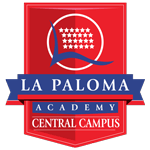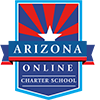Parents want their children to succeed. While we may be well aware staying involved in our children’s educational process can help them excel, it’s not always clear how to best achieve this. La Paloma Academy believes academic success is a team effort, and families can be incredible advocates for a child’s education.
Students and schools, including our very own Tucson charter school, can benefit in a number of ways from parent and family participation. In fact, there was a recent study at the University of New Hampshire which showed “[p]arental effort is consistently associated with higher levels of achievement, and the magnitude of the effect of parental effort is substantial. We found that schools would need to increase per-pupil spending by more than $1,000 in order to achieve the same results that are gained with parental involvement,” said Karen Smith Conway, a UNH professor of economics who was one of the authors of the study.[i]
Some of the potential advantages include:
- Increased self-confidence for kids
- Improved academic success
- Better attitudes about schoolwork overall
- Greater student engagement (as measured by homework completion, behavior, and class participation)
- Decreased behavioral issues
- Reinforced good study habits
- Bridged communications gaps between parents and teachers
- Shared ownership and trust building among faculty
- Environments that better school performances overall
School-based contributions of time and talent are needed and appreciated manners of engagement. Getting involved at school is a great way to show your child that education is important to you and you are dedicated to the school community. At La Paloma, involvement and volunteer opportunities abound:
- Fundraising
- Chaperoning for events and field trips
- Classroom and other on-campus assistance opportunities
- Attending parent-teacher conferences and school events
At La Paloma Academy, we realize each parent has a unique schedule and unfortunately cannot participate in certain types of involvement initiatives. Rest assured, some of the most effective engagement activities happen at home:
- Having defined academic expectations for your child
- Setting clear academic goals
- Speaking with your child regularly about school
- Inquiring about what they are learning
- Monitoring their progress
- Holding your children accountable
- Talking to them about any concerns or worries they have about school, academically and socially
- Keeping open lines of communication with your child’s teacher
- Placing a high value on education
- Supporting learning at home
- Encouraging them to complete assignments
- Providing a distraction-free environment for homework
- Being available to field questions and help clarify information
- One of the most effective types of engagement a parent can participate in is reading with children nightly
Support from both school and home can help make your child feel that school is important and, as a result, he or she is more likely to do better in school. Parental involvement has been mandated by federal and state laws for decades and it is viewed as a vital ingredient in building and sustaining effective schools. It can also build trust between parents, teachers, and school administration, as well as creating environments where school and institutional improvements are more likely.
Parental engagement and involvement can be beneficial to all recipients—children, teachers, and the larger school and district communities. You can inspire powerful and measurable academic responses in your student through your interest in their school, their learning, and them. Your interest also sets a powerful example which can have lasting effects.
La Paloma Academy welcomes all forms of family engagement, but, of course, all volunteers—be they parents, guardians, caregivers, family members or community members—must get fingerprinted and register with the school office. They must also sign in every time they are on campus for the safety of students and staff.
[i] Karen Smith Conway and Andrew Houteville. “Parental Effort, School Resources, and Student Achievement.” Journal of Human Resources. Spring 2008.


